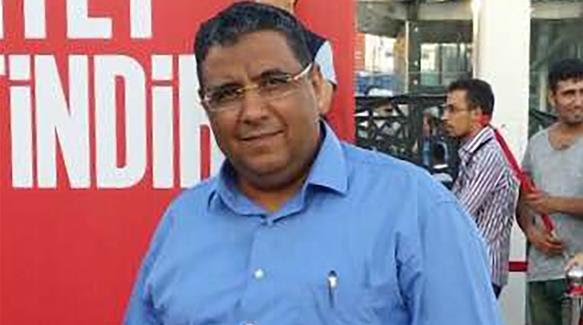Egyptian authorities have extended the detention of Al Jazeera journalist Mahmoud Hussein by another 45 days.
The extension on Sunday came more than 1,300 days after his arrest upon arrival in Egypt’s capital, Cairo.
Hussein, an Egyptian national working for the Al Jazeera Arabic television channel in Qatar, was arrested on December 20, 2016, while on a personal visit to see his family.
Hussein was accused of “incitement against state institutions and broadcasting false news with the aim of spreading chaos”, allegations he and the Al Jazeera Media Network deny.
The Doha-based network has repeatedly called for Hussein’s release.
In May 2019, an Egyptian court rejected an order by the state prosecutor to release him.
Authorities opened a new investigation against him with unspecified charges and returned him to prison.
His incarceration is already in breach of Egypt’s penal code, which sets a maximum pretrial detention period of 620 days for individuals being investigated for a felony.
While in solitary confinement, Hussein suffered a broken arm and has been refused proper medical treatment.
The United Nations has called on Egypt to end Hussein’s “arbitrary detention”, saying the “appropriate remedy would be to release Mr Hussein immediately”.
Crackdown on journalists
Last month, veteran Egyptian journalist Mohamed Monir died after contracting the new coronavirus during pretrial detention following his arrest for appearing on Al Jazeera, which is banned by Egypt’s government.
The 65-year-old died a week after he was hospitalised with COVID-19 following his release from detention in early July due to his sickness.
In a statement at the time, Al Jazeera said it was “saddened and deeply dismayed” by the death of Monir after contracting COVID-19 during his “unwarranted imprisonment” and expressed its condolences to the journalist’s family.
“We reiterate the seriousness of the deteriorating health conditions in Egyptian prisons amidst the COVID-19 pandemic,” it said, noting the overcrowded facilities “are known for their unhygienic conditions, which during the current pandemic can pose an imminent threat to prisoners, ultimately endangering their lives and wellbeing”.
Since the 2013 overthrow of Egyptian President Mohamed Morsi, a senior member of the Muslim Brotherhood, Al Jazeera Media Network has been portrayed as Egypt’s national enemy for its coverage of the group.
That same year, Egypt arrested and later imprisoned Al Jazeera’s Abdullah Elshamy, Baher Mohamed, Mohamed Fahmy and Peter Greste on charges of spreading “false news” – cases that were widely condemned by international media outlets and many politicians. All have since been freed.
A former editor-in-chief of Al Jazeera Arabic was sentenced to death in absentia for purportedly endangering national security.
Several other Al Jazeera journalists have also been charged in absentia of spreading lies and supporting “terrorists” – a reference to the outlawed Muslim Brotherhood organisation.
Since removing Morsi in a coup, President Abdel Fattah el-Sisi has waged an unprecedented crackdown on dissent, arresting thousands and rolling back freedoms won after the 2011 uprising that ended decades of rule by Hosni Mubarak.
Reporters Without Borders ranked Egypt 166th out of 180 in its 2020 Press Freedom Index.
SOURCE: AL JAZEERA NEWS



